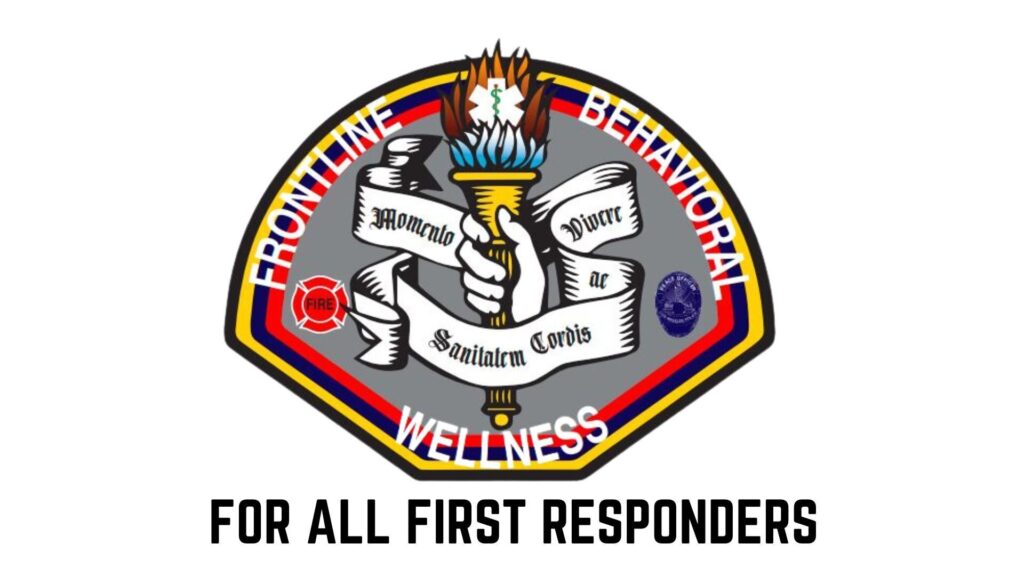Group Therapy for First Responders
Group therapy provides a supportive environment where individuals can share experiences, learn from others, and develop coping strategies. Frontline Behavioral Wellness in Costa Mesa offers specialized group therapy sessions tailored for first responders. Recognizing their unique challenges, these sessions aim to facilitate open dialogue, foster camaraderie, and provide the tools necessary to manage stress and enhance mental well-being.
Recovering in a Community
Highly-stressed and emotionally-taxed first responders often experience post-traumatic stress injury (PTSI), depression, and other mental health issues. Left untreated, these conditions lead to serious consequences including substance abuse and suicidal behavior.
To help first responders get the mental health care they need, Frontline Behavioral Wellness in Costa Mesa provides comprehensive inpatient and outpatient treatment options. One of them is group therapy. An experienced clinical team evaluates the benefits of group therapy for each patient and decides whether to implement it in the course of treatment.

Why First Responders Need Mental Health Treatment
First responders are exposed to traumatic and dangerous situations on a regular basis. This can take a serious toll on their mental health and put them at risk for developing PTSI, depression, anxiety, substance use disorders, and other mental health issues.
If left untreated, these conditions can lead to serious physical and emotional health problems and even suicide. That’s why it’s so important for first responders to get the mental health treatment they need as soon as possible.
Unfortunately, the stigma that surrounds mental health issues prevents first responders from seeking help timely. Frontline Behavioral Wellness focuses solely on first responder treatment to ensure discreetness and comfort. That’s what makes this facility different and highly suitable for first responder treatment.
What is Group Therapy?
Group therapy is a type of psychotherapy that involves a group of people interacting with each other and a therapist or counselor to discuss issues that are affecting them. It can help people cope with personal traumas, conquer mental health disorders, and build strong and healthy relationships with others.
This type of therapy can be a powerful tool for first responders, as it allows them to connect with others who are dealing with similar issues and get the support they need.
Effective group therapy is comprised of a few essential elements. These elements include:
- Open dialogue
- Sharing of personal experiences
- Education
- Support
The group dynamic is an important part of the process and provides a safe, non-judgmental space for first responders to share their emotions, learn from each other, and receive assistance from a qualified therapist.
How Group Therapy at Frontline Behavioral Wellness Works
Frontline Behavioral Wellness offers comprehensive group therapy for first responders in Costa Mesa. The goal is to provide a safe and supportive environment where first responders can feel comfortable discussing their issues, build relationships with their peers, and find the strength to manage their mental health.
The clinical team at Frontline Behavioral Wellness uses evidence-based therapies to address both individual and collective issues. These therapists have substantial experience providing trauma-informed group therapy to first responders.

Benefits of Group Therapy for First Responders
Overcome a Variety of Symptoms
Group therapy is a beneficial treatment for first responders. It can help them reduce their symptoms of PTSI, depression, and anxiety, as well as prevent substance abuse.
Build Lasting Relationships
This type of therapy can also help first responders build strong and healthy relationships with others and learn ways to manage their emotions. It can be a powerful tool for increasing self-awareness, gaining insight into their behavior, and improving communication skills.
Become a Part of a Community
One of the key advantages of group therapy for first responders is the ability to see that they aren't alone. Once these nation's heroes realize that mental health problems are common among their peers, they are more willing to get assistance.
Different Types of Group Therapy We Offer
A type of group therapy that is based on the idea that thoughts, feelings, and behavior are all connected. It focuses on helping people identify and change negative or unhealthy patterns of thoughts and behavior.
This therapy uses a special approach to promote positive change, including better social interaction.
These groups aim to educate the participants about their condition and how they affect the person’s behavior, emotions, and thoughts. Studies show that these groups can be highly effective for people with depression.
These groups help patients cope with serious life changes, such as losing a family member or developing a chronic illness.
A type of group therapy that helps patients learn skills to help them cope with their mental health condition.

Group Therapy & Privacy
Group therapy at Frontline Behavioral Wellness is discreet and confidential. We know how important is can be for first responders to find treatment away from the pressures of the job. Our clinical team takes the patient’s privacy seriously.
Group therapy is conducted by licensed therapists, psychologists, and counselors. Our professional team has the experience and expertise to provide group therapy for first responders. We understand the unique stresses of the job and can help first responders find the tools and strategies they need to manage their mental health.
Improve Yourself with Frontline Behavioral Wellness
Group therapy is an effective treatment for first responders who are struggling with emotional and mental health issues. The key goal of this therapy is to provide a safe and supportive environment where first responders can get the help they need.
Frontline Behavioral Wellness offers a variety of group therapy options. Our clinicians are experienced in providing various different modalities when it comes to our group therapy sessions. With our help, first responders can find the strength and support they need to manage mental health and improve their quality of life.

Reach Out Today
To learn more about if Acera Health is right for you, and what to expect, contact us Today!
"*" indicates required fields
3100 Bristol St. Suite # 250 Costa Mesa, CA 92626
info@acerahealth.com
DHCS license number: MHBT220400
DHCS license expiration date: July 20, 2024
DSS license number: 306006131 & 306006072



